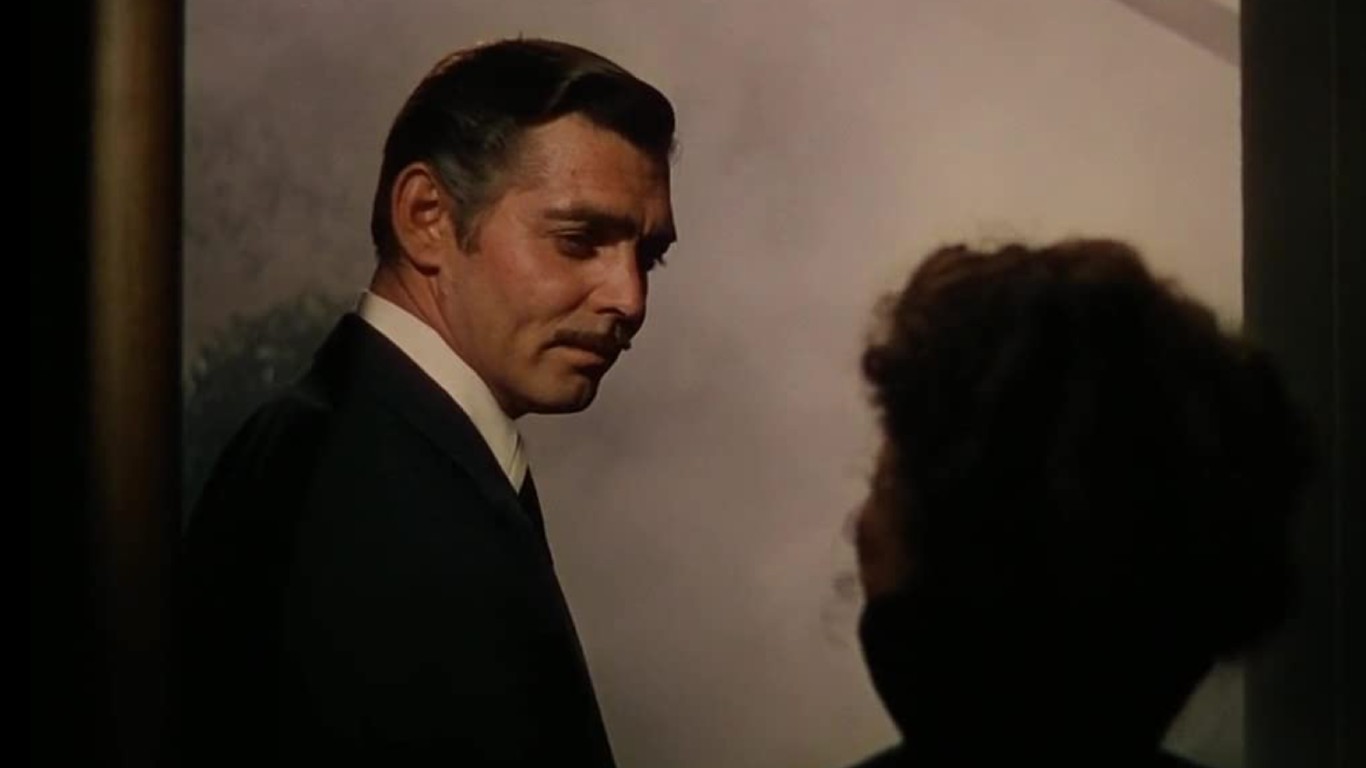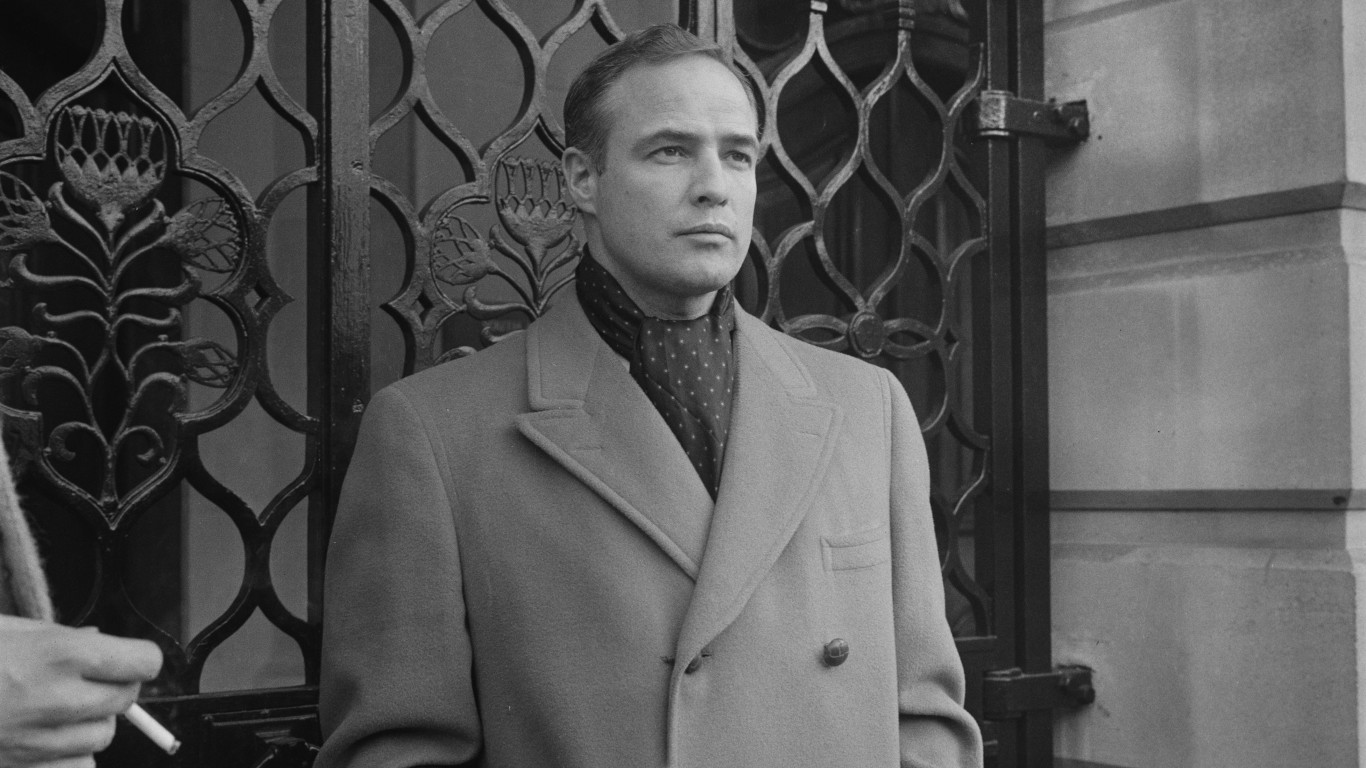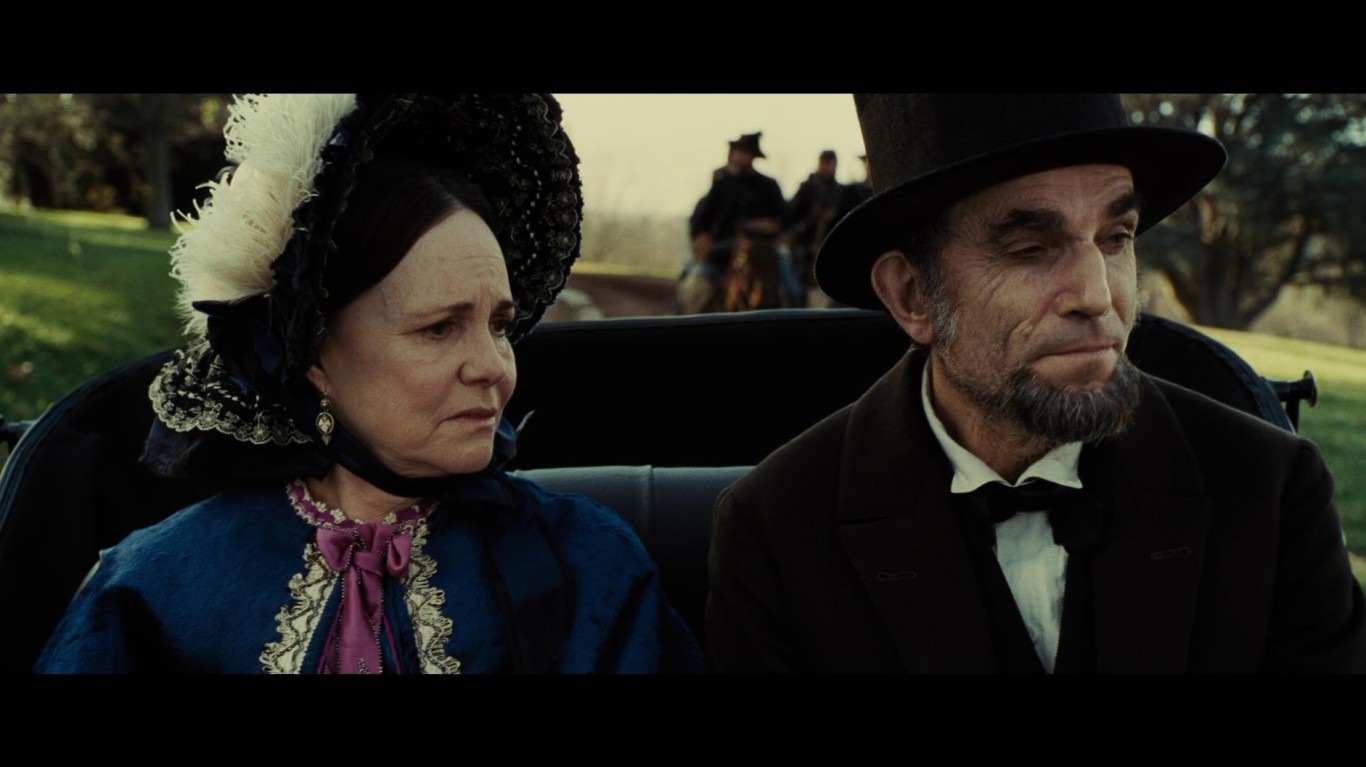
Some of the best movies ever made are historical dramas. Not only do they allow us to connect with past events on a deeper, more personal level, they transport some of the world’s most iconic figures from staid history texts to the big screen, giving them new life.
We might think we know presidents like JFK and Nixon, sports heroes like Lou Gehrig, monarchs including Queen Elizabeth II and George VI, and World War II’s Patton and Churchill, but seeing them portrayed by great actors adds an extra layer of depth. By making them characters in a narrative film, filmmakers bring them alive for us, adding context to milestone moments of their lives – including legendary speeches that they’ve given.
Most of us have seen video or heard audio of some of the 20th century’s most memorable orations, like FDR’s Pearl Harbor address or Churchill’s commitment to “fight on the beaches”. And nearly every schoolchild has read Lincoln’s Gettysburg Address. But even some lesser-known speeches, like Woodrow Wilson’s declaration of war against Germany or Lincoln’s second inaugural address, are truly powerful and played a role in changing the course of history, and their cinematic depictions are some of the finest moments in cinema. (These are the greatest wartime speeches in history.)
Click here to see the best deliveries of real speeches in movies and TV
To compile a list of the best deliveries of real speeches in movies and TV (by actors), 24/7 Tempo reviewed video clips on YouTube and consulted sites including the National Archives, IMDb, and American Rhetoric. This is not a comprehensive list but a compendium of some of the most celebrated and important speeches ever captured on film. In many cases, the real-life addresses have been shortened and occasionally slightly reworked for film purposes. There are no speeches from Dr. Martin Luther King Jr. on this list because his estate controls their copyright. (Here, though, are 32 powerful quotes from Martin Luther King Jr.)
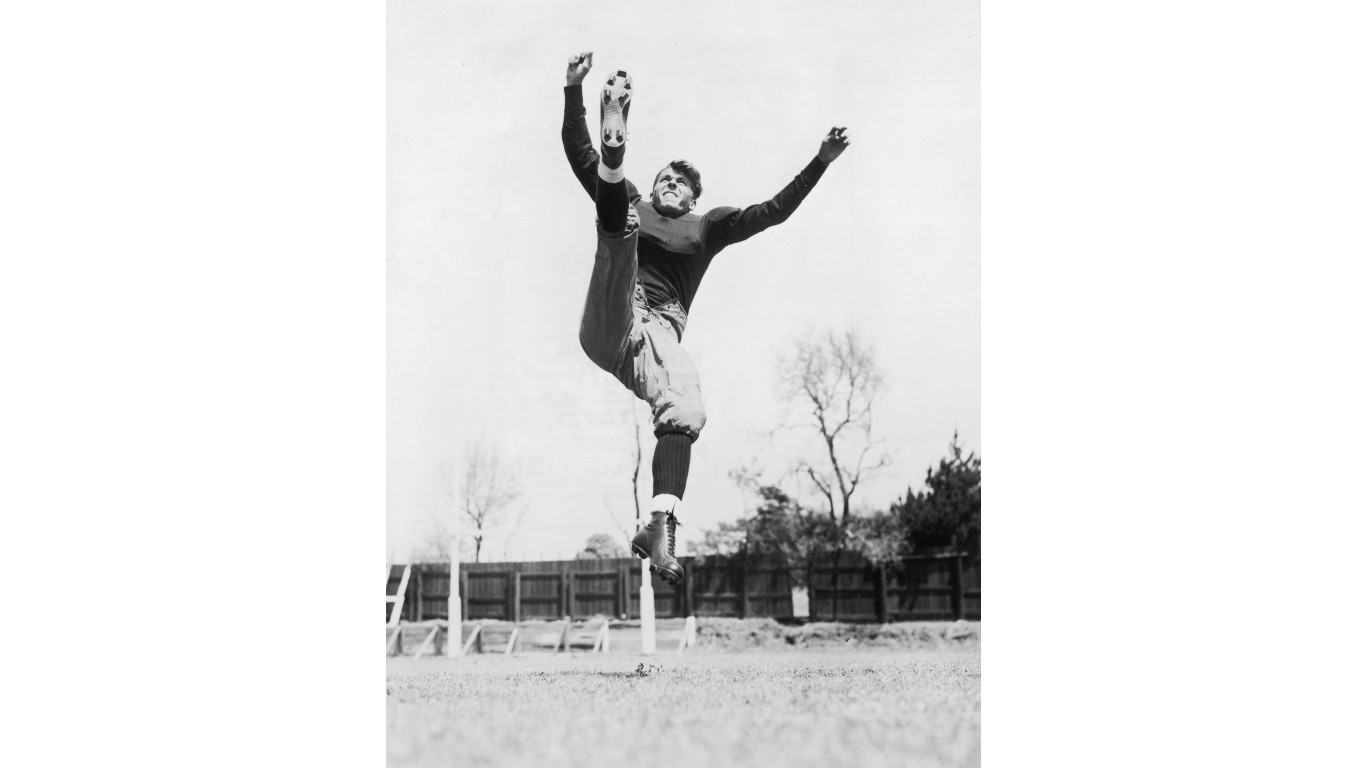
Knute Rockne, All American (1940)
> Speech: “Win one for the Gipper”
> Delivered by: Ronald Reagan playing George Gipp
If you’ve ever heard the phrase “Win one for the Gipper,” that’s because of legendary Notre Dame football coach Knute Rockne. While losing at halftime during a game vs. Army at Yankee Stadium in 1928, Rockne tried to rally his players by telling them the story of the dying words of Notre Dame’s best player ever, George Gipp. This speech was later depicted in the 1940 film “Knute Rockne, All American,” in which Ronald Reagan played Gipp. Notre Dame won the game, and Reagan continued to use the phrase throughout his political career.
[in-text-ad]
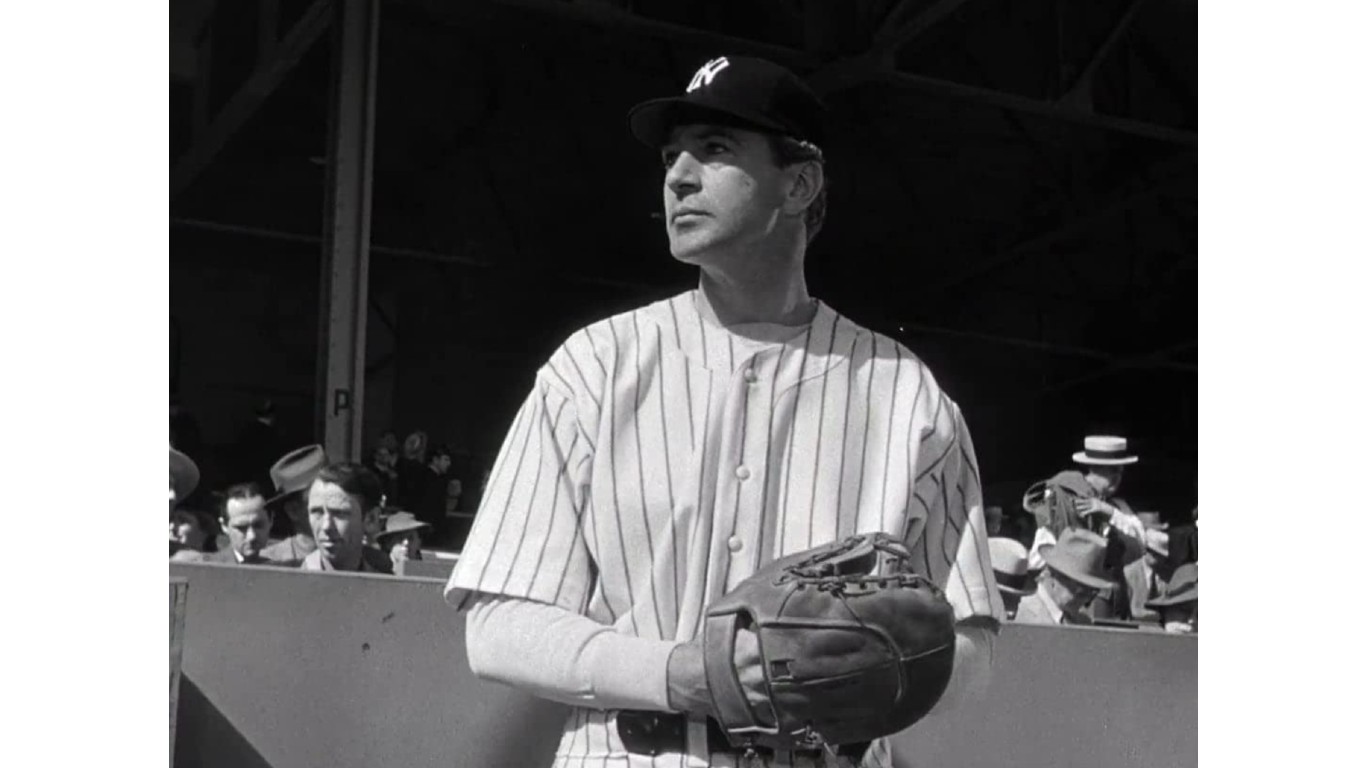
Pride of the Yankees (1942)
> Speech: “Luckiest man on the face of the Earth”
> Delivered by: Gary Cooper playing Lou Gehrig
Yankee great Lou Gehrig, shortly after being forced into early retirement due to a tragic diagnosis of ALS that led to his death in 1941 at age 37, gave one of the most famous speeches in sports history at Yankee Stadium on July 4, 1939. This moment, in which he declared himself “the luckiest man on the face of the Earth,” was memorialized a year after his death by Gary Cooper in “Pride of the Yankees.”

Wilson (1944)
> Speech: Declaration of war against Germany
> Delivered by: Alexander Knox playing Woodrow Wilson
Daryl F. Zanuck’s 1944 Technicolor biopic of President Woodrow Wilson won the Academy Award for Best Original Screenplay. One of the most memorable and affecting scenes in the film is when actor Alexander Knox delivers part of Wilson’s 1917 speech to Congress declaring war on Germany – calling the declaration “a distressing and oppressive duty…which I have performed in thus addressing you.”
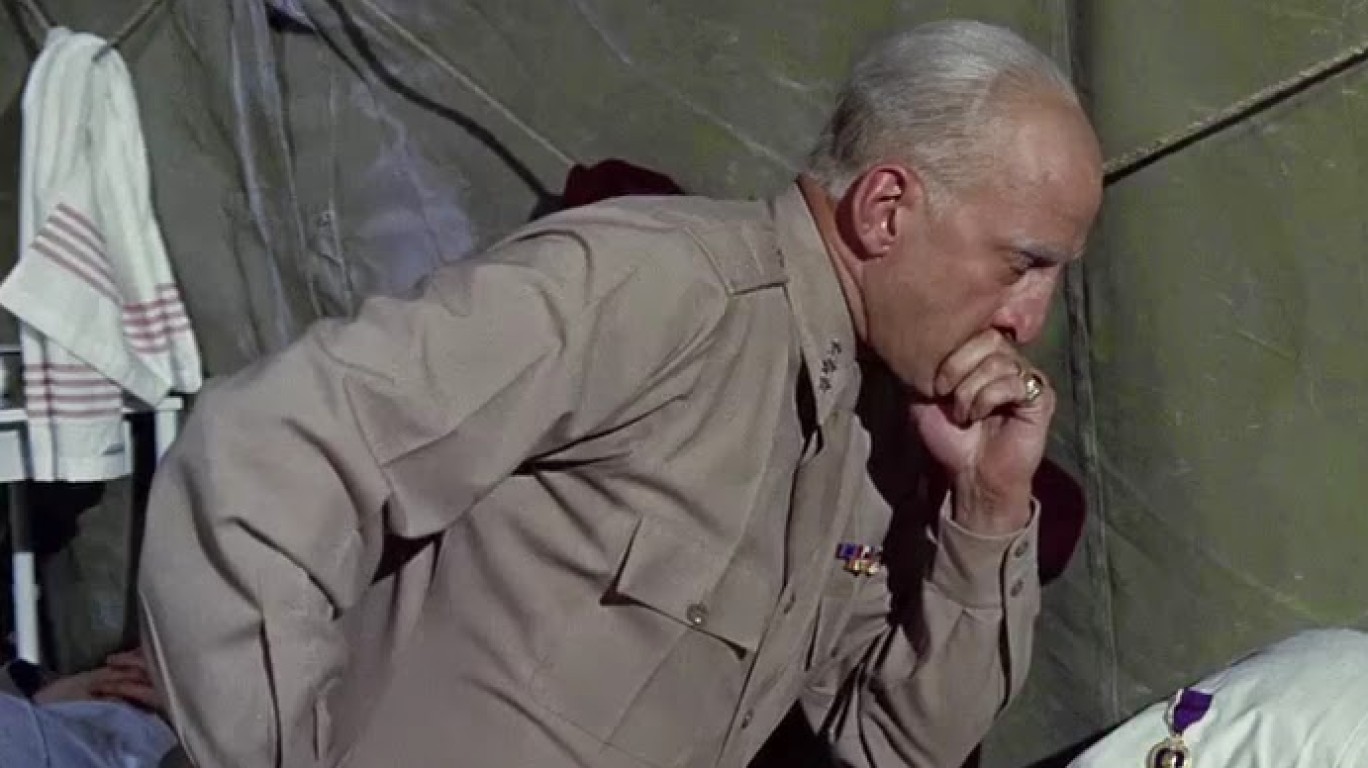
Patton (1970)
> Speech: Rallying the troops before the invasion of France
> Delivered by: George C. Scott playing George Patton
One of cinema’s most iconic and enduring images is the very first scene in 1970’s “Patton,” in which George C. Scott, as U.S. General George S. Patton, addresses troops in front of a giant American flag during World War II. In the speech, he discusses the importance of victorious role models and the value of fighting as a team in order to defeat the enemy. This is a shorter (and less profane) version of a real speech given by Patton to the Third Army in 1944, before the Allied invasion of France.
[in-text-ad-2]
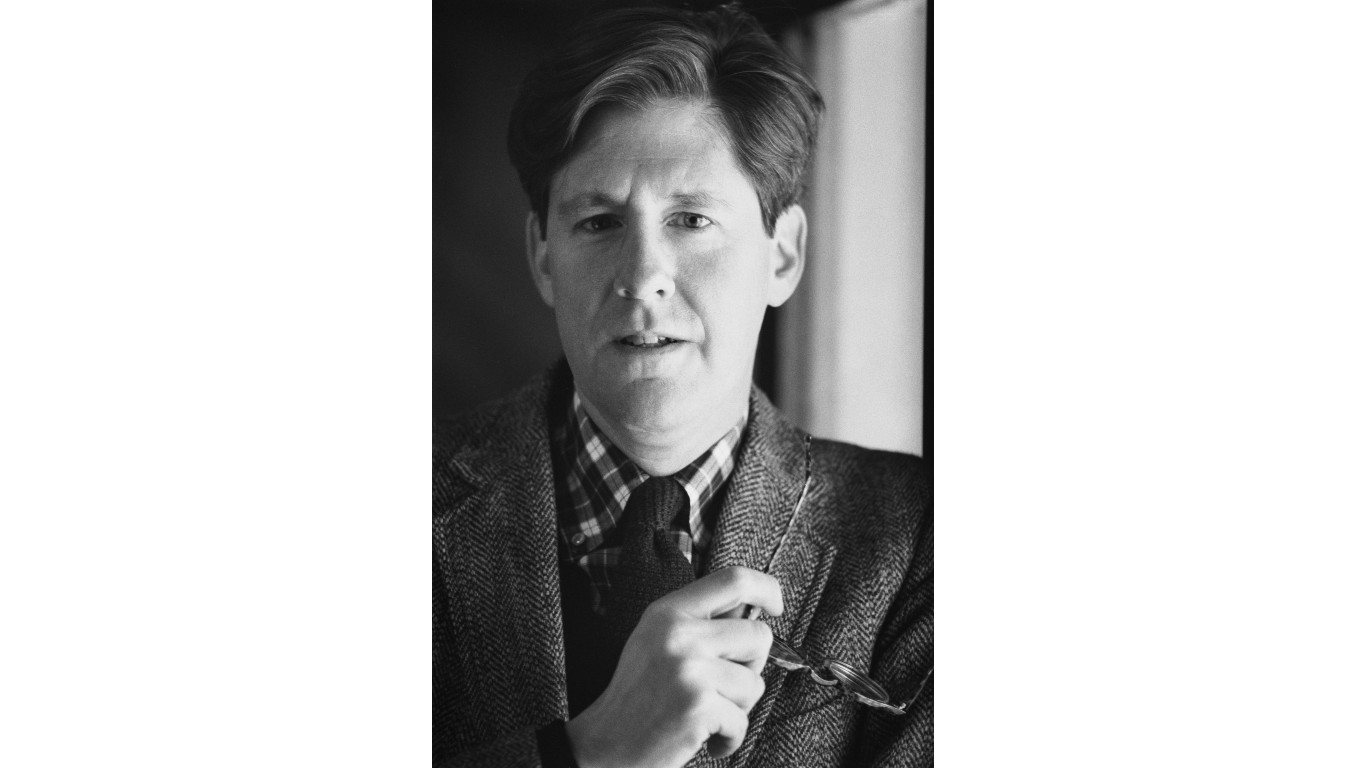
Eleanor and Franklin: The White House Years (1977)
> Speech: “The only thing we have to fear is fear itself”
> Delivered by: Edward Hermann playing Franklin Roosevelt
“The only thing we have to fear is fear itself,” uttered during his first inauguration speech in 1933, is quite possibly President Franklin Roosevelt’s most famous quote. This moment was recreated by Edward Hermann (who made something of a career for himself portraying FDR) in the 1977 made-for-television movie “Eleanor and Franklin: The White House Years,” the sequel to the previous year’s “Eleanor and Franklin: The Early Years.”
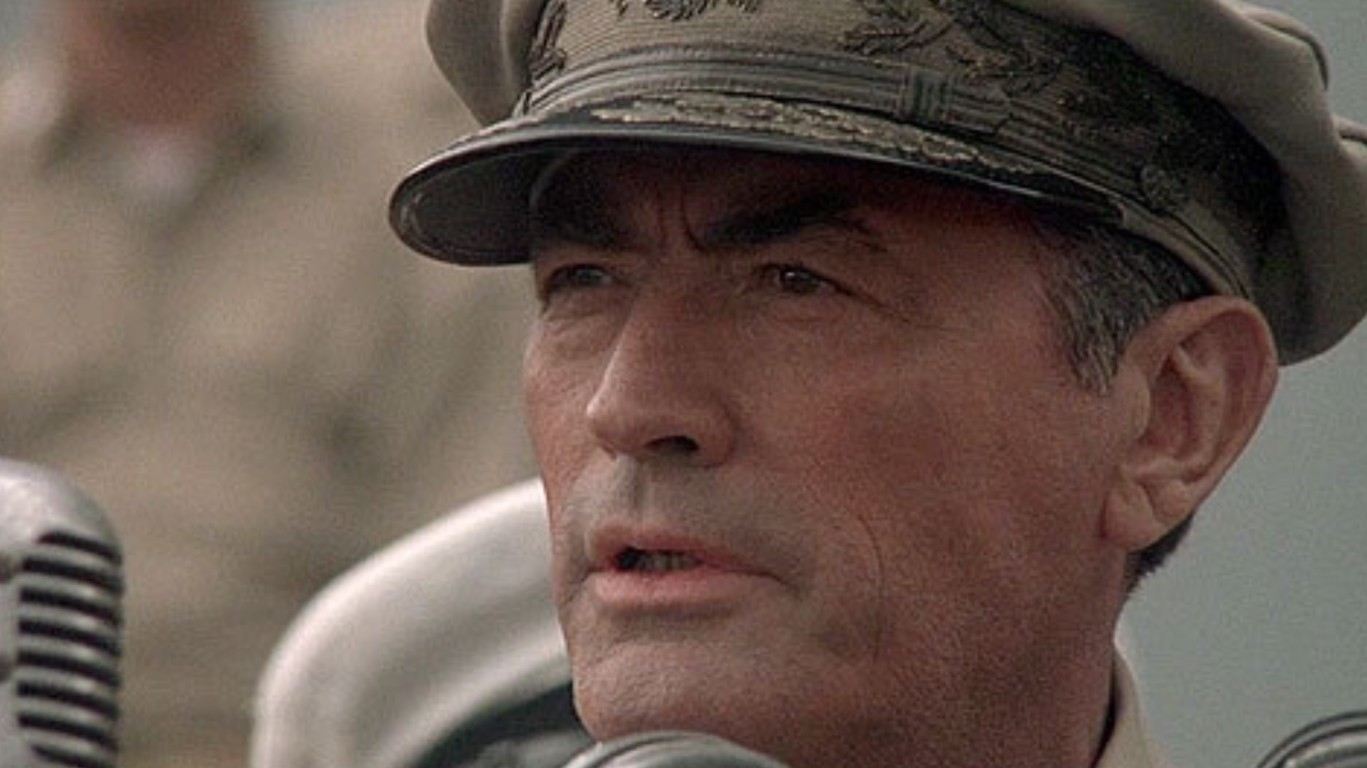
MacArthur (1977)
> Speech: “Duty, honor, country”
> Delivered by: Gregory Peck playing Douglas MacArthur
Gregory Peck portrayed World War II General of the Army Douglas MacArthur in this film, which received mixed reviews. Peck’s performance was praised, however – especially his delivery of MacArthur’s famous 1962 speech to West Point cadets in which he praises the virtues of “duty, honor, country.”
[in-text-ad]
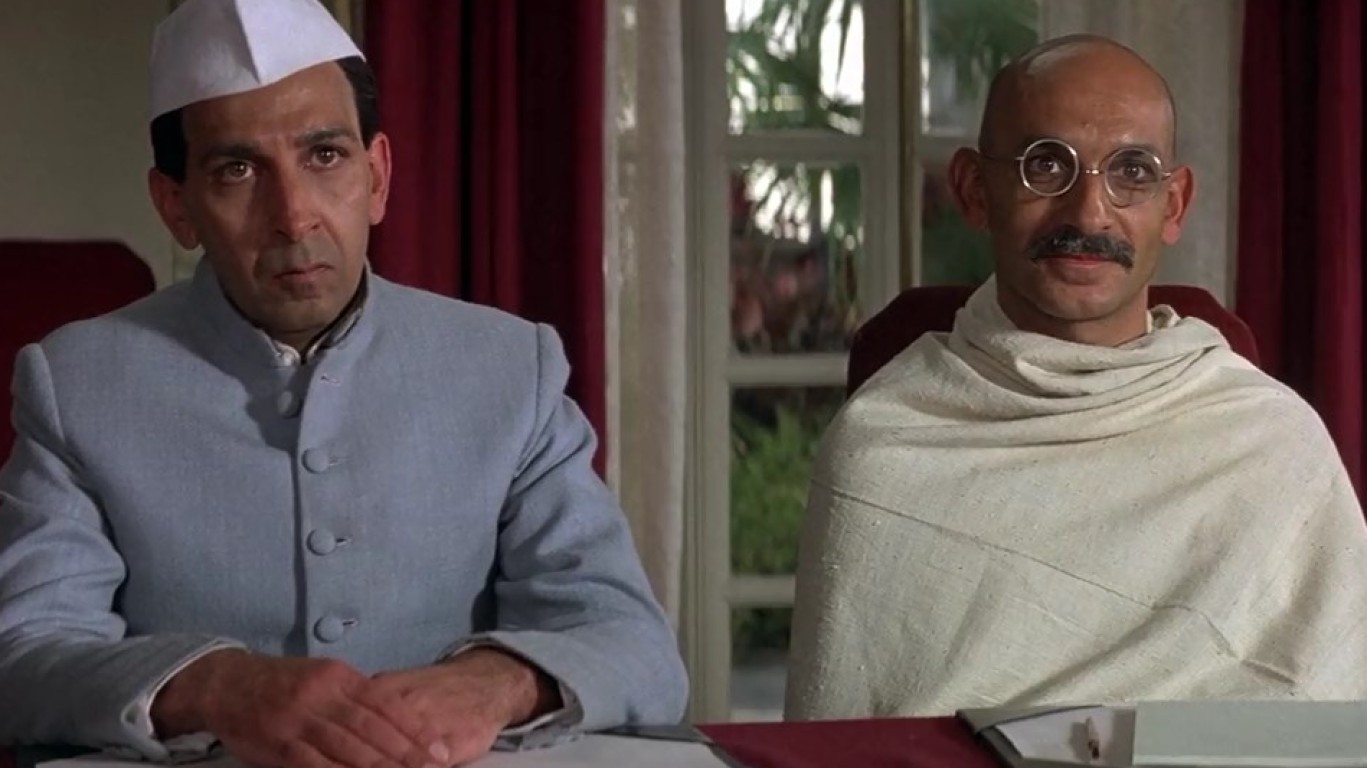
Gandhi (1982)
> Speech: A future vision for South Africa
> Delivered by: Ben Kingsley playing Mahatma Gandhi
One of the biggest films of the ’80s, “Gandhi” was a worldwide smash and won eight Academy Awards, including Best Picture, Best Director, and Best Actor – for Ben Kingsley, in the title role. At a key early moment in the film, Gandhi starts a non-violent protest campaign for the rights of Indians in South Africa, giving a memorable speech in which he argues that they are British subjects who are just as deserving of the same rights as whites.
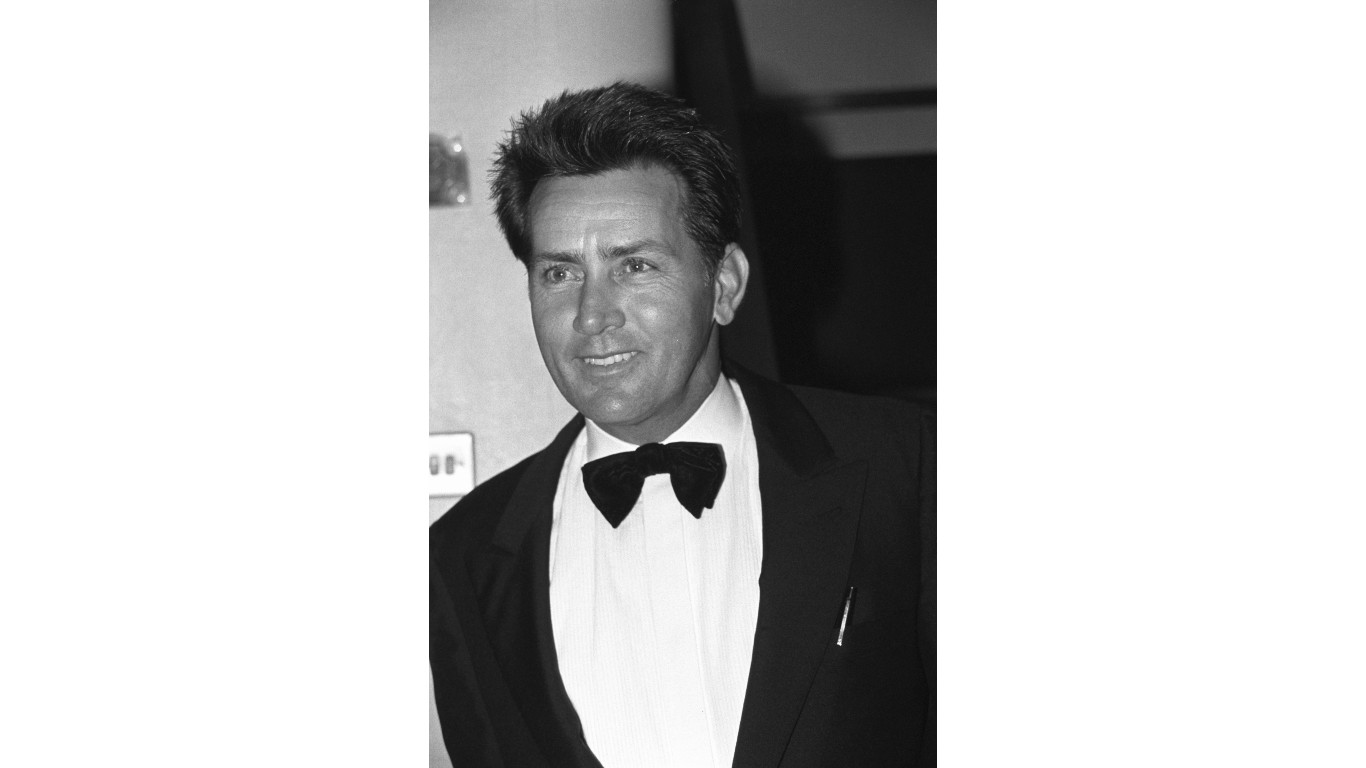
Kennedy (1983)
> Speech: “The torch has been passed”
> Delivered by: Martin Sheen playing President John F. Kennedy
Martin Sheen starred as President John F. Kennedy in the five-part 1983 NBC miniseries “Kennedy.” During his inaugural address, American watches intently as Kennedy declares “Let the word go forth from this time and place, to friend and foe alike, that the torch has been passed to a new generation of Americans, born in this century, tempered by war, disciplined by a hard and bitter peace, proud of our ancient heritage, and unwilling to witness or permit the slow undoing of those human rights to which this nation has always been committed, and to which we are committed today at home and around the world.”
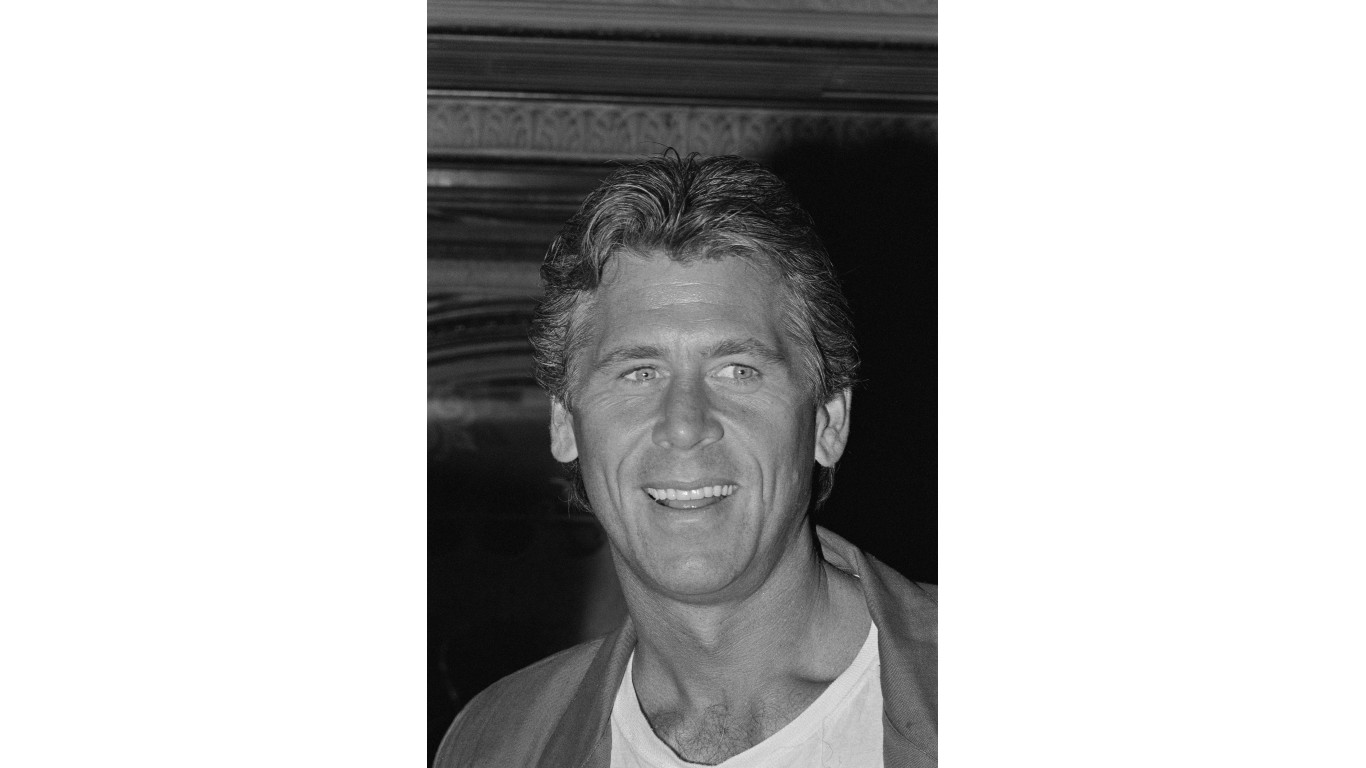
George Washington II: The Forging of a Nation (1986)
> Speech: Farewell address
> Delivered by: Barry Bostwick playing George Washington
Barry Bostwick portrayed George Washington in the 1984 made-for-TV movie “George Washington” as well as this 1986 sequel. The film received poor ratings but Bostwick’s performance was praised, especially his portrayal of Washington’s iconic farewell address, written as a letter to his “friends and fellow-citizens” before his retirement from public service.
[in-text-ad-2]
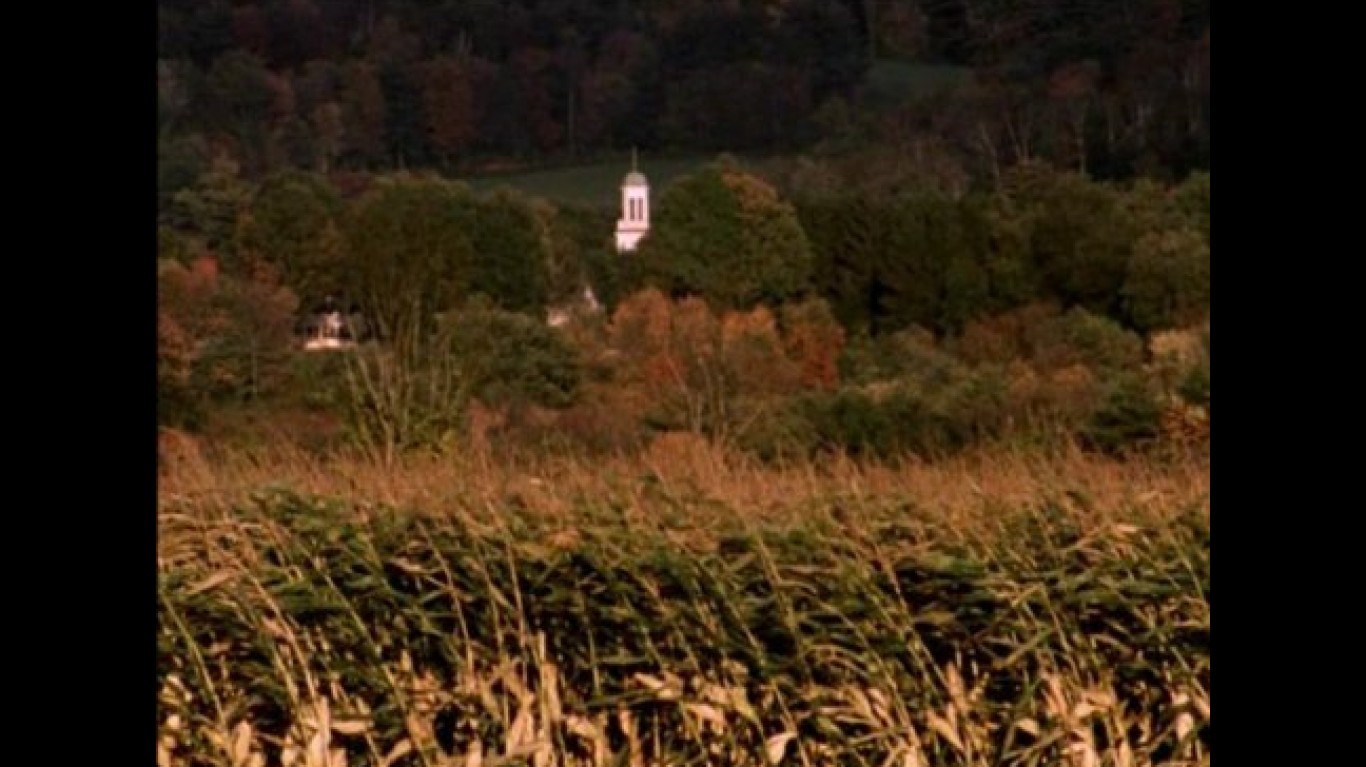
The Civil War (1990)
> Speech: Gettysburg Address
> Delivered by: Sam Waterston playing Abraham Lincoln
Filmmaker Ken Burns’ 1990 documentary miniseries “The Civil War” is widely regarded as one of the best and most groundbreaking documentaries of all time. It educated millions of Americans about the war, and was praised for its use of Civil War photos and the hiring of actors – including Waterston, Jason Robards, Morgan Freeman, and Jeremy Irons – to provide voice-overs of quotes from historical figures. The most famous speech of the war, Lincoln’s Gettysburg Address, was delivered with aplomb by Waterston.
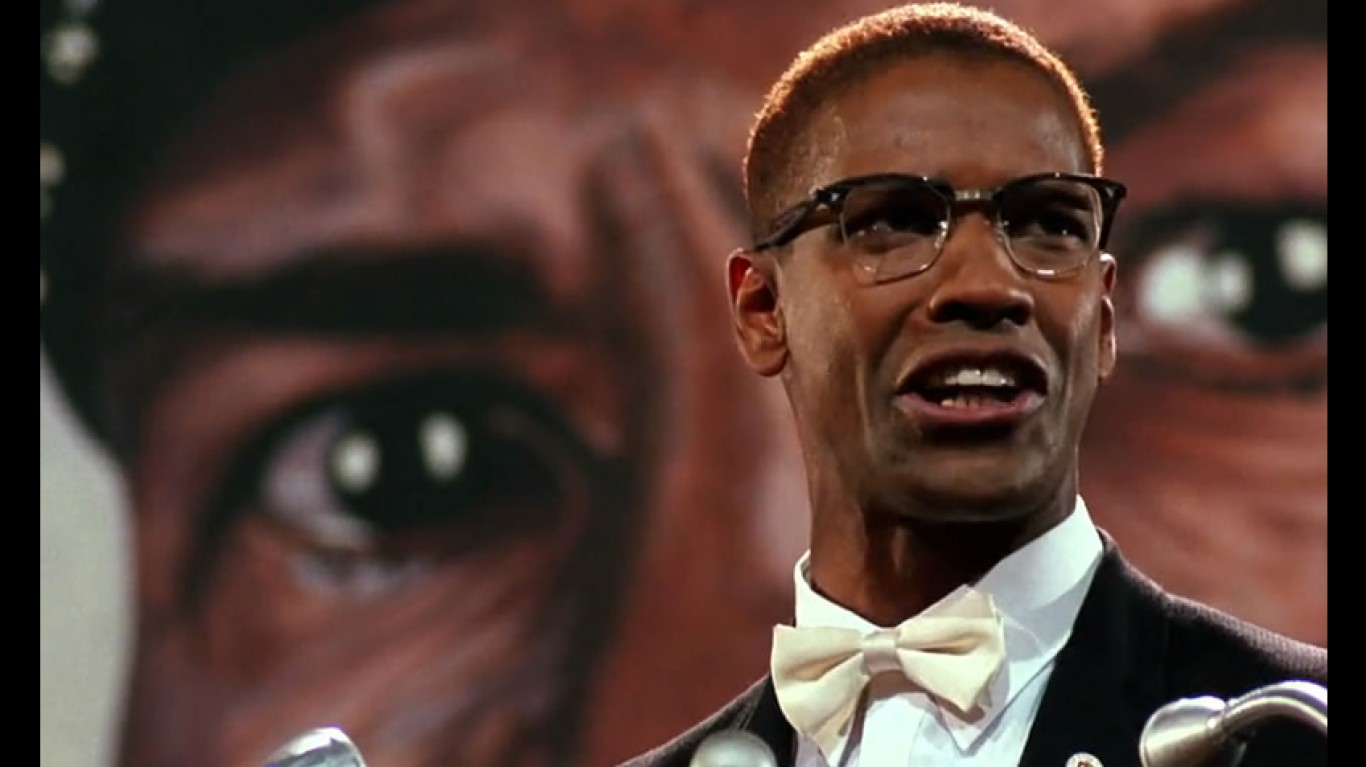
Malcolm X (1992)
> Speech: “Hoodwinked”
> Delivered by: Denzel Washington playing Malcolm X
Denzel Washington received critical acclaim and an Oscar nomination for his portrayal of African-American activist Malcolm X in the 1992 film of the same name, directed by Spike Lee. One of the film’s most memorable scenes is when Malcolm addresses the people of Harlem, “Every election year these politicians are sent up here to pacify us!… I say and I say it again, ya been had! Ya been took! Ya been hoodwinked!”
[in-text-ad]
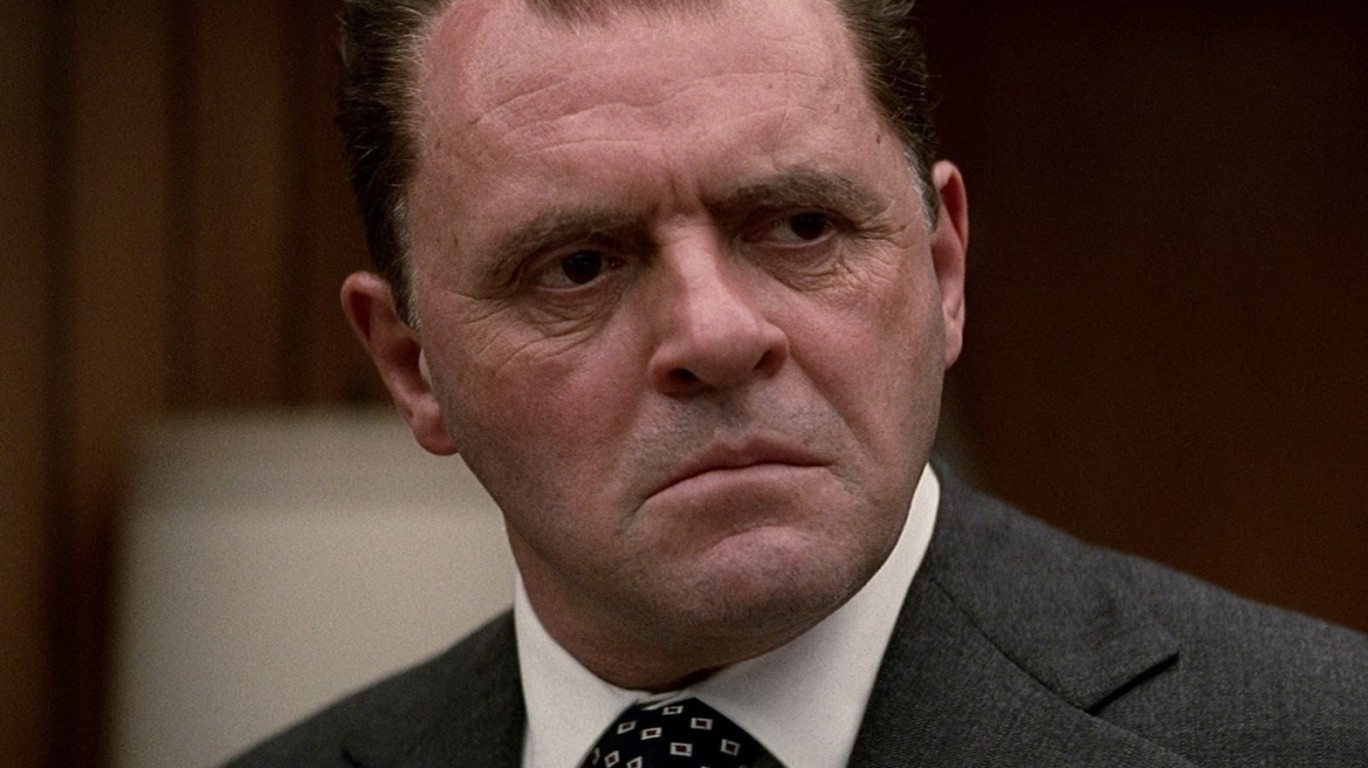
Nixon (1995)
> Speech: “We’re gonna keep it” and “You won’t have Nixon to kick around anymore”
> Delivered by: Anthony Hopkins playing Richard Nixon
Anthony Hopkins gives a tour-de-force, Oscar-winning performance as President Richard Nixon in 1995’s “Nixon,” directed by Oliver Stone. Two of Nixon’s most famous speeches are seen in flashback, expertly delivered in Hopkins: his 1952 “Checkers” speech (in which he defended himself after being accused of misusing political expense funds, and admitted to receiving the gift of a cocker spaniel named Checkers, which he planned to keep) and his bitter 1962 concession speech after losing the California gubernatorial election to Edmund “Pat” Brown, in which he told members of the press that “You won’t have Nixon to kick around anymore.”
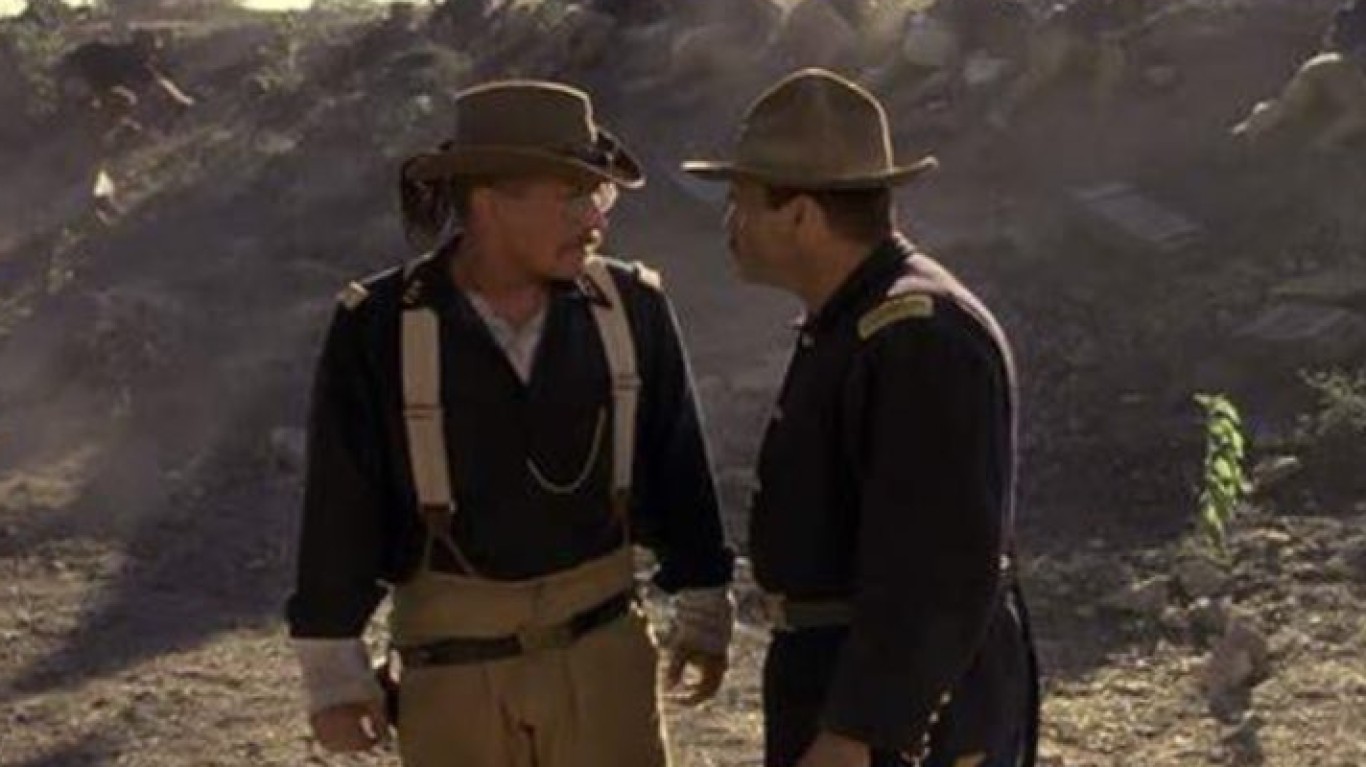
Rough Riders (1997)
> Speech: Speech to the Naval War College
> Delivered by: Tom Berenger playing Theodore Roosevelt
“Rough Riders” is a 1997 TNT miniseries about the famed volunteer cavalry unit led by future President Theodore Roosevelt, which fought in the Battle of San Juan Hill in Cuba during the Spanish-American War. It starred Tom Berenger as Roosevelt, who gives a standout speech to the Naval War College in Newport, Rhode Island, in 1897. “Preparation for war is the surest guaranty for peace,” he said.
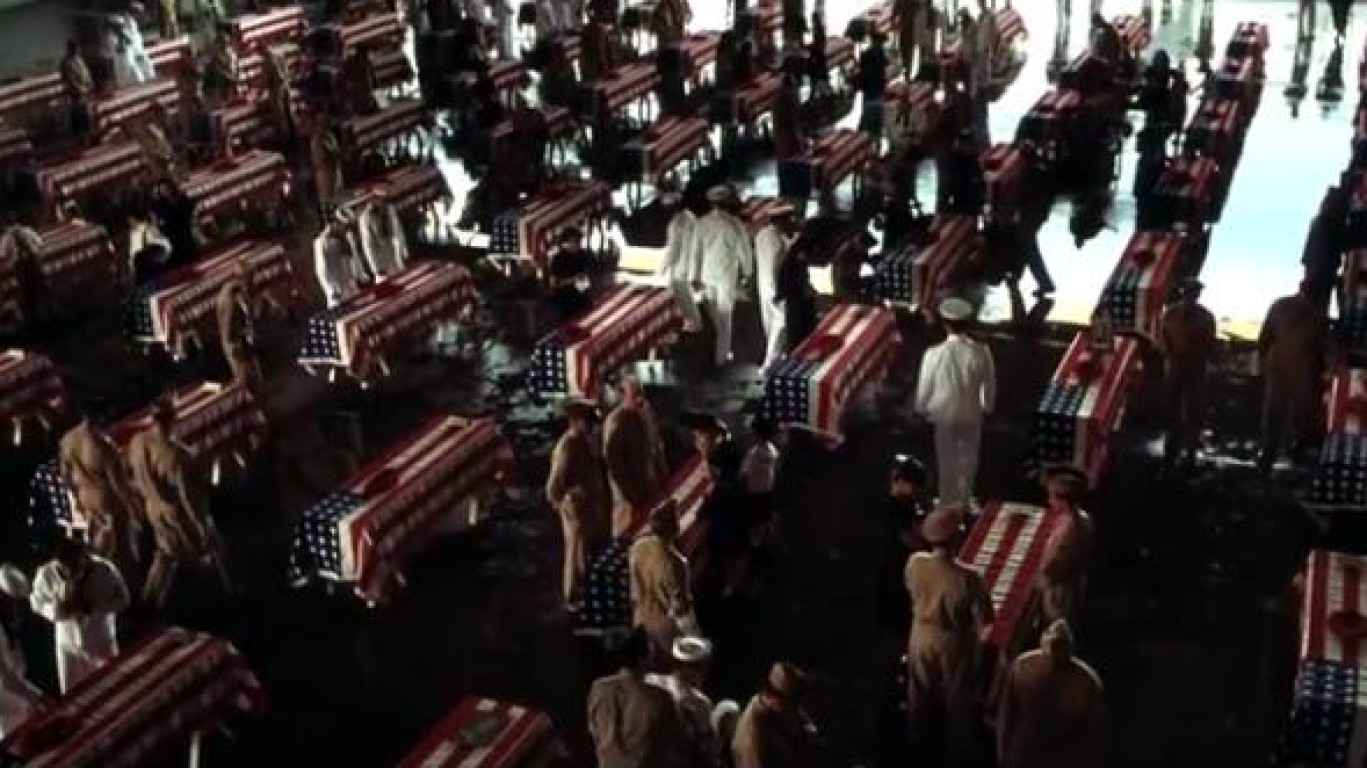
Pearl Harbor (2001)
> Speech: Pearl Harbor address to the nation
> Delivered by: Jon Voight playing Franklin Roosevelt
2001’s “Pearl Harbor” is a big, bombastic Michael Bay romantic war drama, and is about as “Michael Bay” as a movie can get. One of the most stirring scenes in the film, however, follows the Japanese assault on Pearl Harbor. Jon Voight plays President Roosevelt as he gives his iconic address to the nation, declaring December 7, 1941, to be “a date which will live in infamy” and asks Congress to declare war on Japan.
[in-text-ad-2]
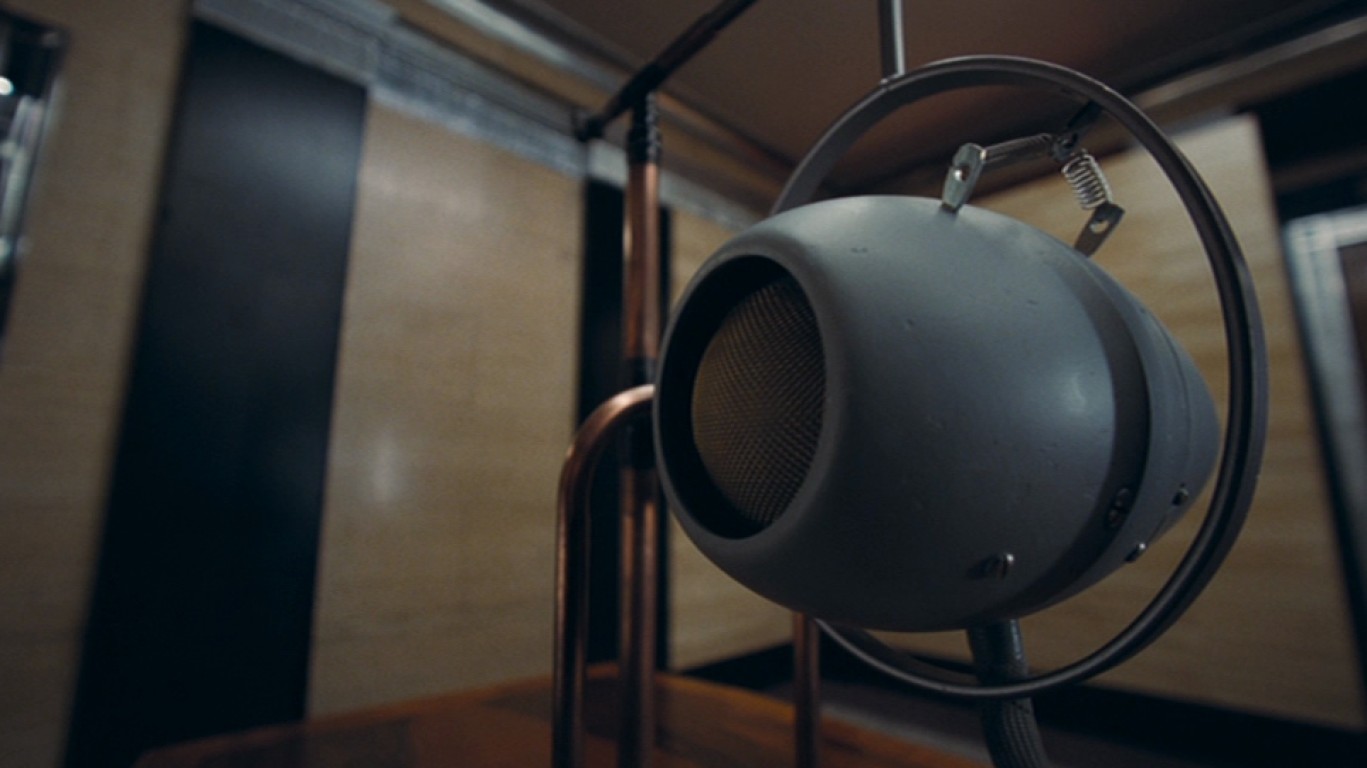
The King’s Speech (2010)
> Speech: Declaration of war on Germany
> Delivered by: Colin Firth playing King George VI
As Britain’s King George VI, Colin Firth spends much of the 2010 film “The King’s Speech” working to overcome a speech impediment that makes it challenging to address crowds, one of the monarch’s primary responsibilities. When he is forced to make a speech declaring war on Germany, potentially the most consequential speech of his reign, and rises to the occasion, it’s one of the film’s most poignant moments.
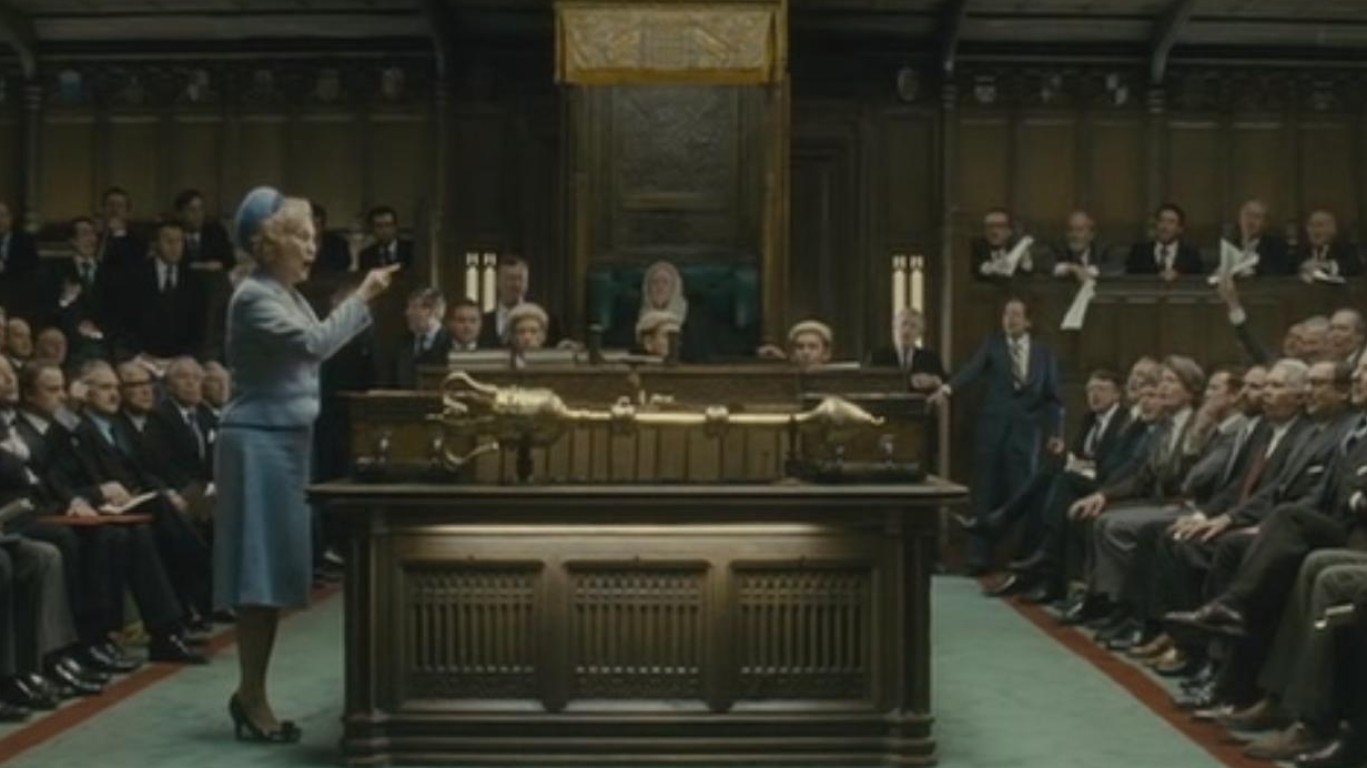
The Iron Lady (2011)
> Speech: “I am very pleased with my promotion to Prime Minister”
> Delivered by: Meryl Streep playing Margaret Thatcher
Meryl Streep won a Best Actress Oscar for her towering performance as Margaret Thatcher, the longest-serving U.K. Prime Minister of the 20th century and first woman to hold the office. The film received mixed reviews, but Streep’s performance was praised, especially in scenes where she gives powerful speeches, such as the one she gave to the Conservative Party Conference when starting her term as PM in 1979.
[in-text-ad]

Lincoln (2012)
> Speech:“With malice toward none”
> Delivered by: Daniel Day-Lewis playing Abraham Lincoln
Perhaps the greatest portrayal of President Lincoln ever committed to film, Daniel Day-Lewis’ performance in Steven Spielberg’s “Lincoln” won him a Best Actor Oscar. The film follows Lincoln in the last four months of his life, as he attempts to get the 13th Amendment passed, banning slavery. In the film’s poignant final scene, after he’s assassinated, the film flashes back to his Second Inaugural Address, where he famously intones the words, “With malice toward none, with charity for all…”
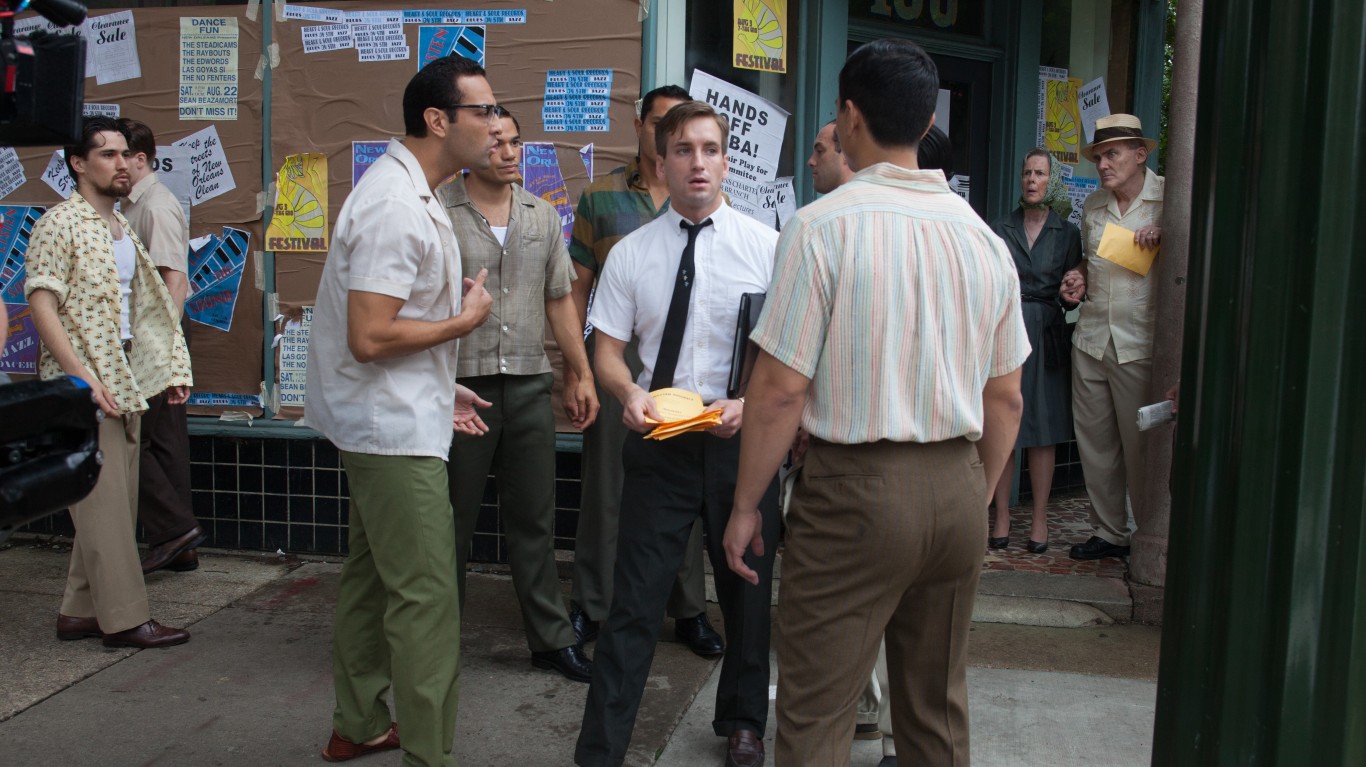
Killing Kennedy (2013)
> Speech: Cuban missile crisis speech
> Delivered by: Rob Lowe playing President John F. Kennedy
“Killing Kennedy,” a 2013 National Geographic Channel made-for-TV film based on the non-fiction book by Bill O’Reilly, starred Rob Lowe in the title role. It follows Kennedy through his presidency and includes a great speech given during the Cuban Missile Crisis, the tensest moment of his tenure, in which he promises “Our goal is not the victory of might, but the vindication of right.”.
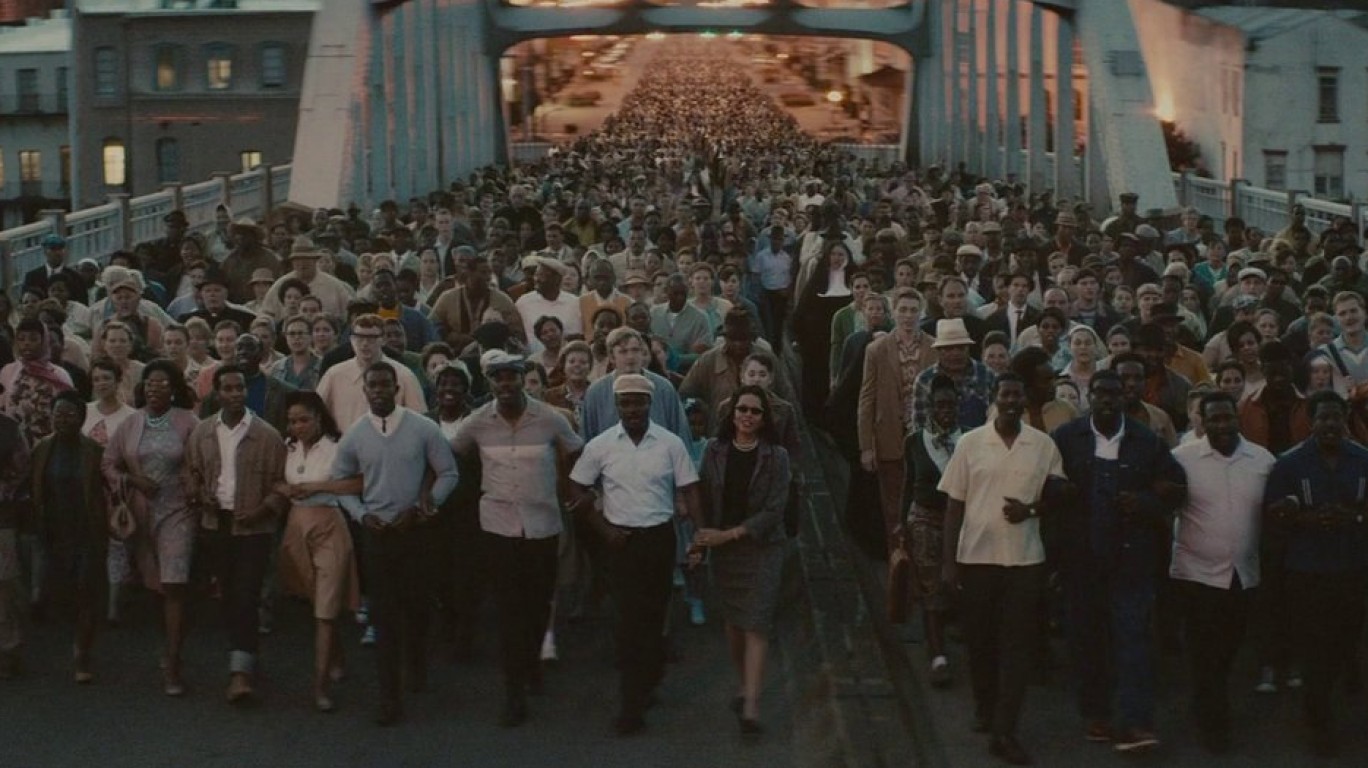
Selma (2014)
> Speech: Speech in wake of violence in Selma – “We shall overcome”
> Delivered by: Tom Wilkinson playing President Lyndon Johnson
Less than two months after Lyndon Johnson’s inauguration as President, civil rights leaders were attacked by police as they attempted to cross the Edmund Pettus Bridge in Selma, Alabama, to protest voter suppression. Shortly thereafter, Johnson addressed a joint session of Congress to push for a voting rights bill in a speech officially called “The American Promise,” but widely remembered as “We Shall Overcome” – a phrase borrowed from an iconic civil rights song. Tom Wilkinson recreated the speech, watched by more than 70 million Americans and considered Johnson’s “greatest oratorical triumph,” in Ava DuVernay’s film.
[in-text-ad-2]
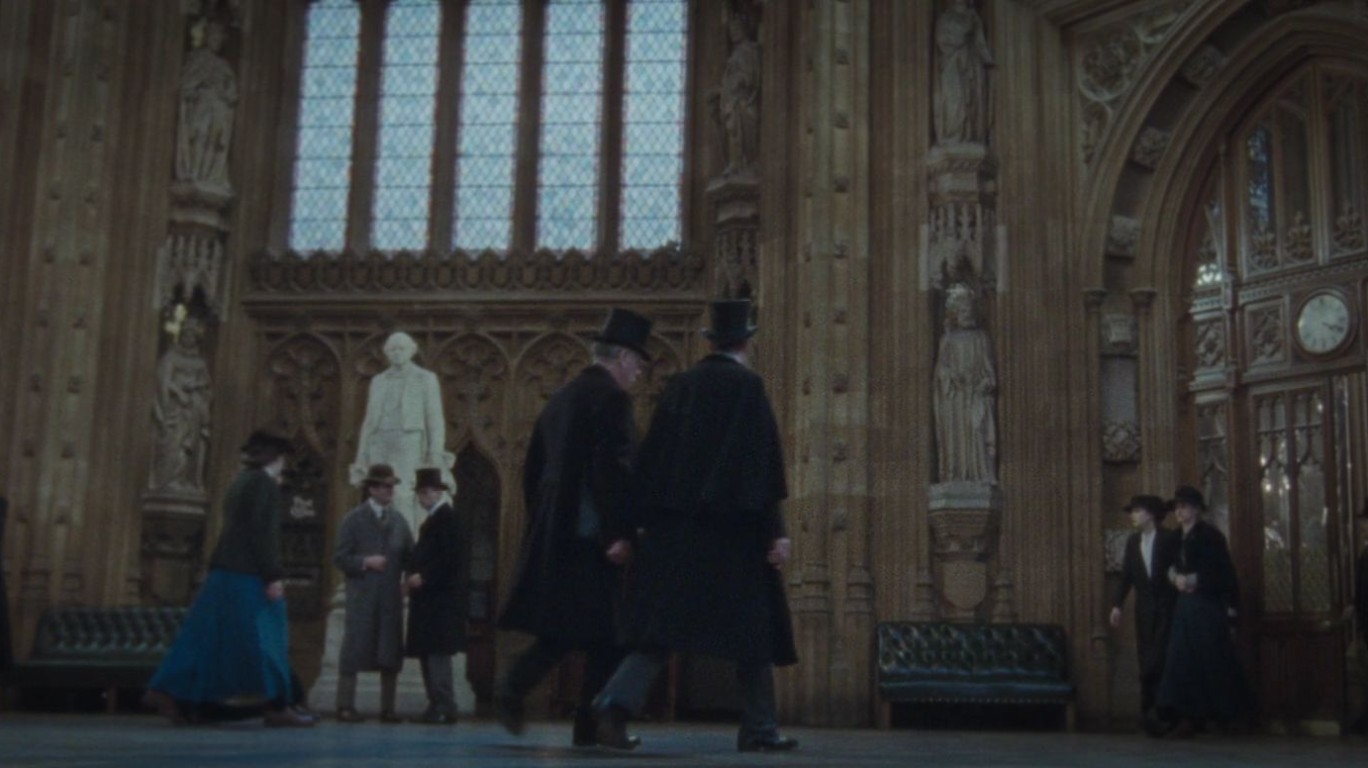
Suffragette (2015)
> Speech: “I incite this meeting”
> Delivered by: Meryl Streep playing Emmeline Pankhurst
“Suffragette” is a 2015 historical drama about the fight for women’s suffrage in the United Kingdom, starring Meryl Streep as Emmeline Pankhurst, the political activist who organized the movement. The film depicts a famous 1912 speech given by Pankhurst at Royal Albert Hall after being released from prison, in which she famously proclaims, “I incite this meeting to rebellion! Be militant in your own way…”
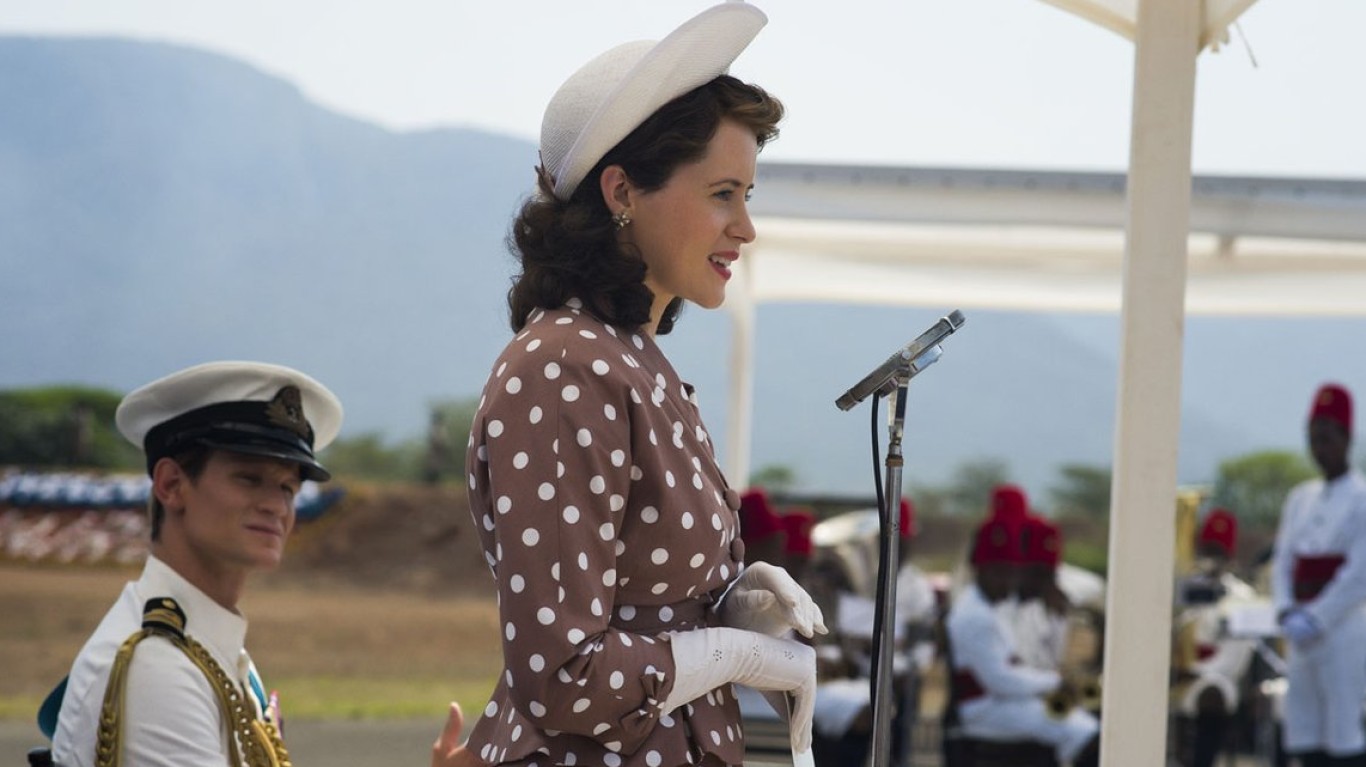
The Crown (2016)
> Speech: A promise to the Commonwealth
> Delivered by: Clarie Foy playing Queen Elizabeth II
One of the most memorable speeches by Queen Elizabeth II was actually given on her 21st birthday, before she became queen. Even though Claire Foy was no longer portraying the Queen in season four of Netflix’s “The Crown,” the actress returned to appear in a flashback in which she gives this first major speech. In it, she famously dedicated her life to service to the Commonwealth nations, stating “I declare before you all that my whole life, whether it be long or short, shall be devoted to your service and the service of our great imperial family to which we all belong.”
[in-text-ad]
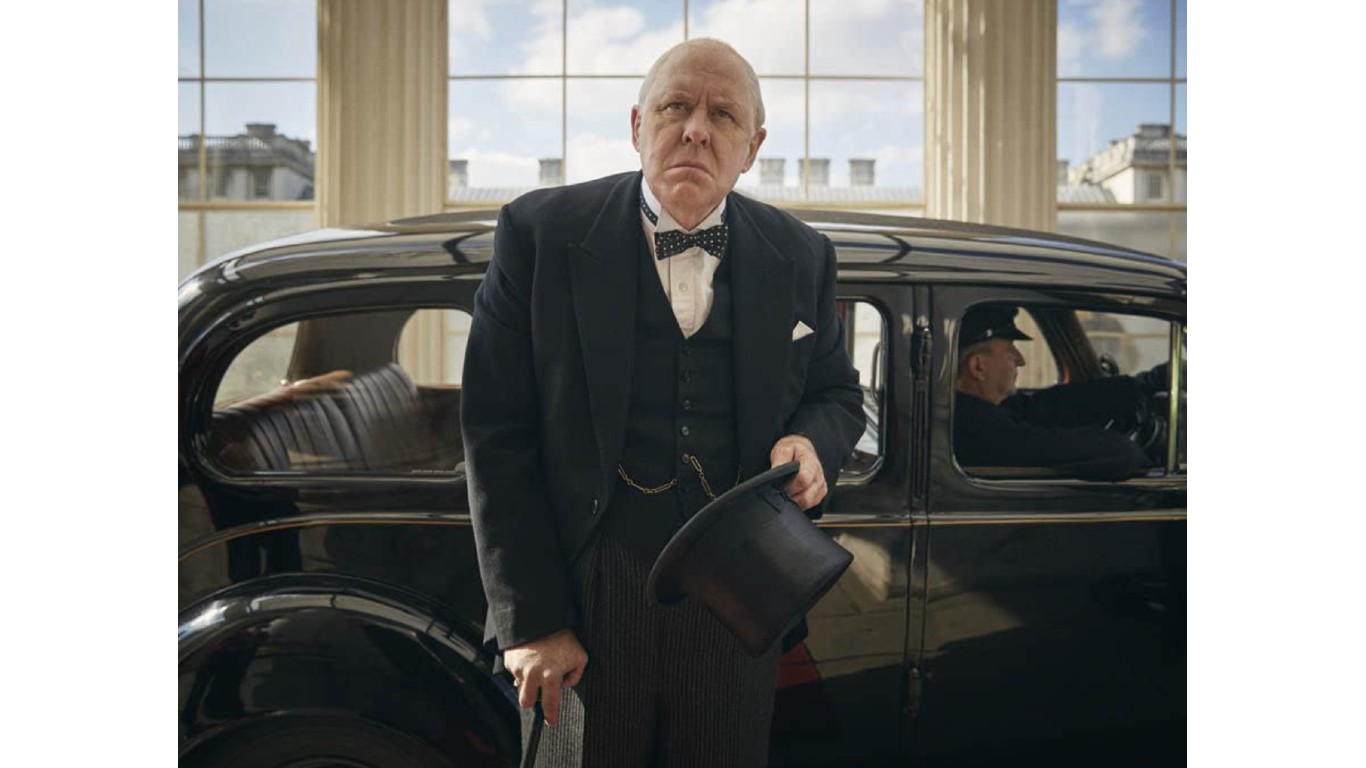
The Crown (2016)
> Speech: Announcement of death of King George VI
> Delivered by: John Lithgow playing Winston Churchill
John Lithgow turned in an impressive performance as Winston Churchill in Netflix’s “The Crown,” and did an admirable job of recreating one of the Prime Minister’s most moving speeches, in which he eulogized King George VI in 1952 and voiced his support for the new queen.
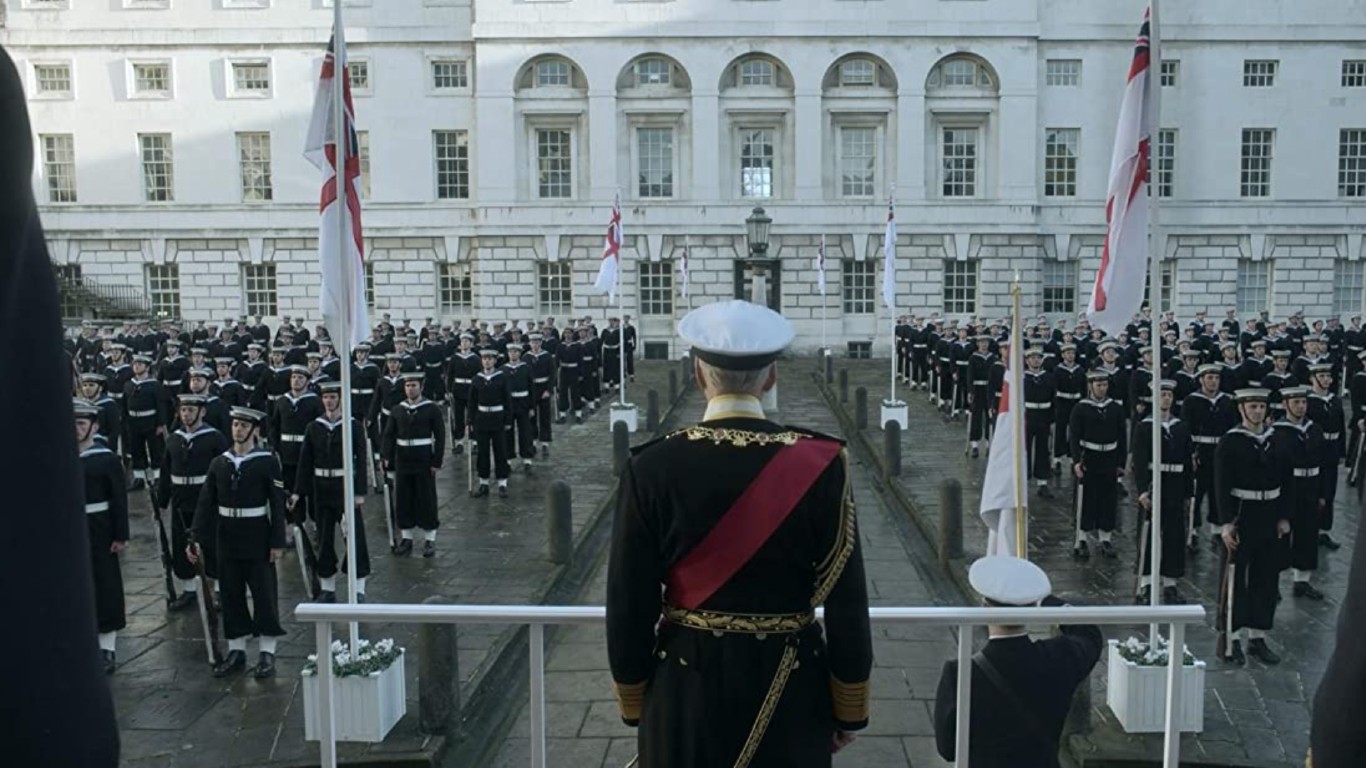
The Crown (2016)
> Speech: The abdication of King Edward VIII
> Delivered by: Alex Jennings playing King Edward VIII
King Edward VIII famously abdicated the throne in 1936, after less than a year as king, in order to marry American socialite Wallis Simpson – a divorcée who would have been unacceptable as the monarch’s wife. He explained his actions in an address broadcast worldwide by the BBC, in which he famously proclaimed, “I have found it impossible to carry the heavy burden of responsibility and to discharge my duties as king as I would wish to do without the help and support of the woman I love.” This was depicted in episode three of the first season of Netflix’s “The Crown,” with actor Alex Jennings playing Edward.
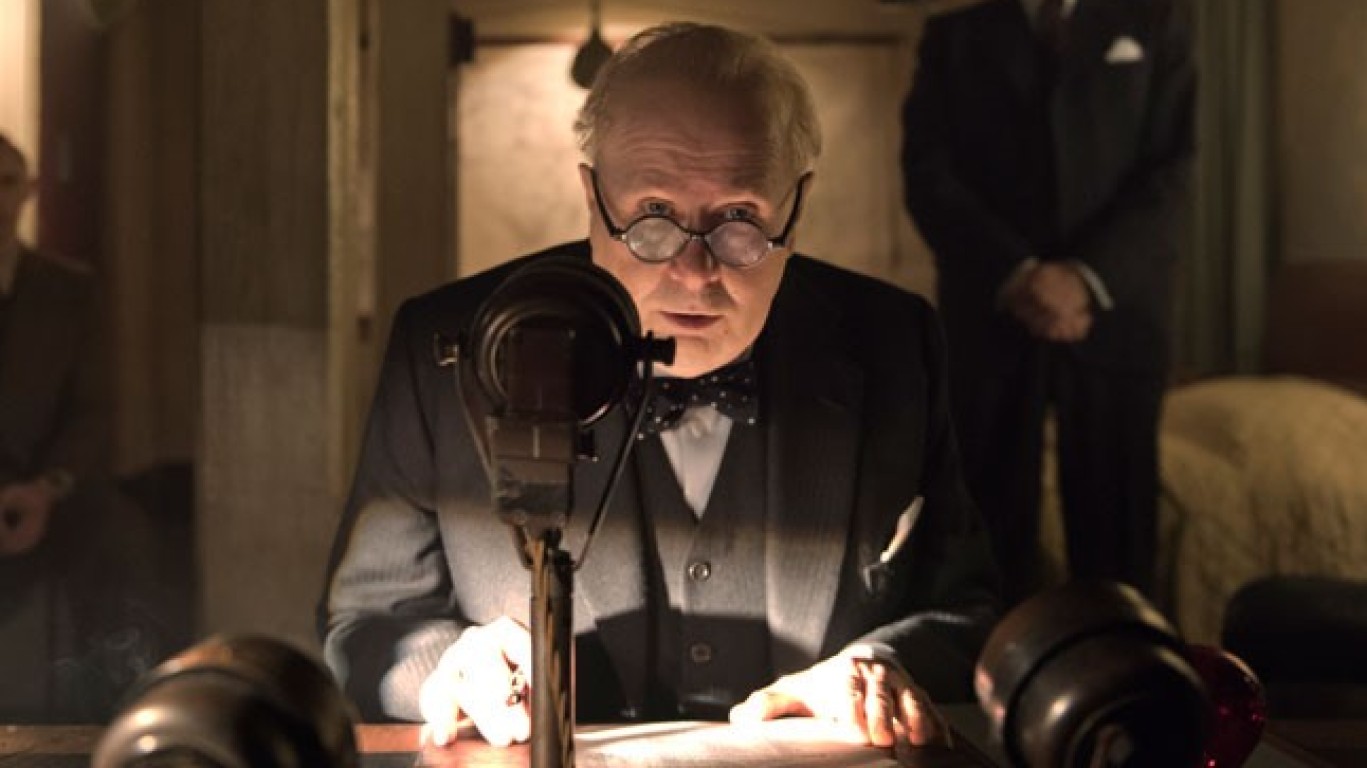
Darkest Hour (2017)
> Speech: “We shall fight on the beaches”
> Delivered by: Gary Oldman playing Winston Churchill
In this account of Winston Churchill’s early tenure as prime minister during World War II, Gary Oldman stars as the British leader. In the film’s climax, as Germany prepares to invade Britain, Churchill gives one of his most memorable and famous speeches to Parliament, in which he dramatically declares, “We shall fight on the beaches, we shall fight on the landing grounds, we shall fight in the fields and in the streets, we shall fight in the hills; we shall never surrender.”
Credit Card Companies Are Doing Something Nuts
Credit card companies are at war. The biggest issuers are handing out free rewards and benefits to win the best customers.
It’s possible to find cards paying unlimited 1.5%, 2%, and even more today. That’s free money for qualified borrowers, and the type of thing that would be crazy to pass up. Those rewards can add up to thousands of dollars every year in free money, and include other benefits as well.
We’ve assembled some of the best credit cards for users today. Don’t miss these offers because they won’t be this good forever.
Flywheel Publishing has partnered with CardRatings for our coverage of credit card products. Flywheel Publishing and CardRatings may receive a commission from card issuers.
Thank you for reading! Have some feedback for us?
Contact the 24/7 Wall St. editorial team.
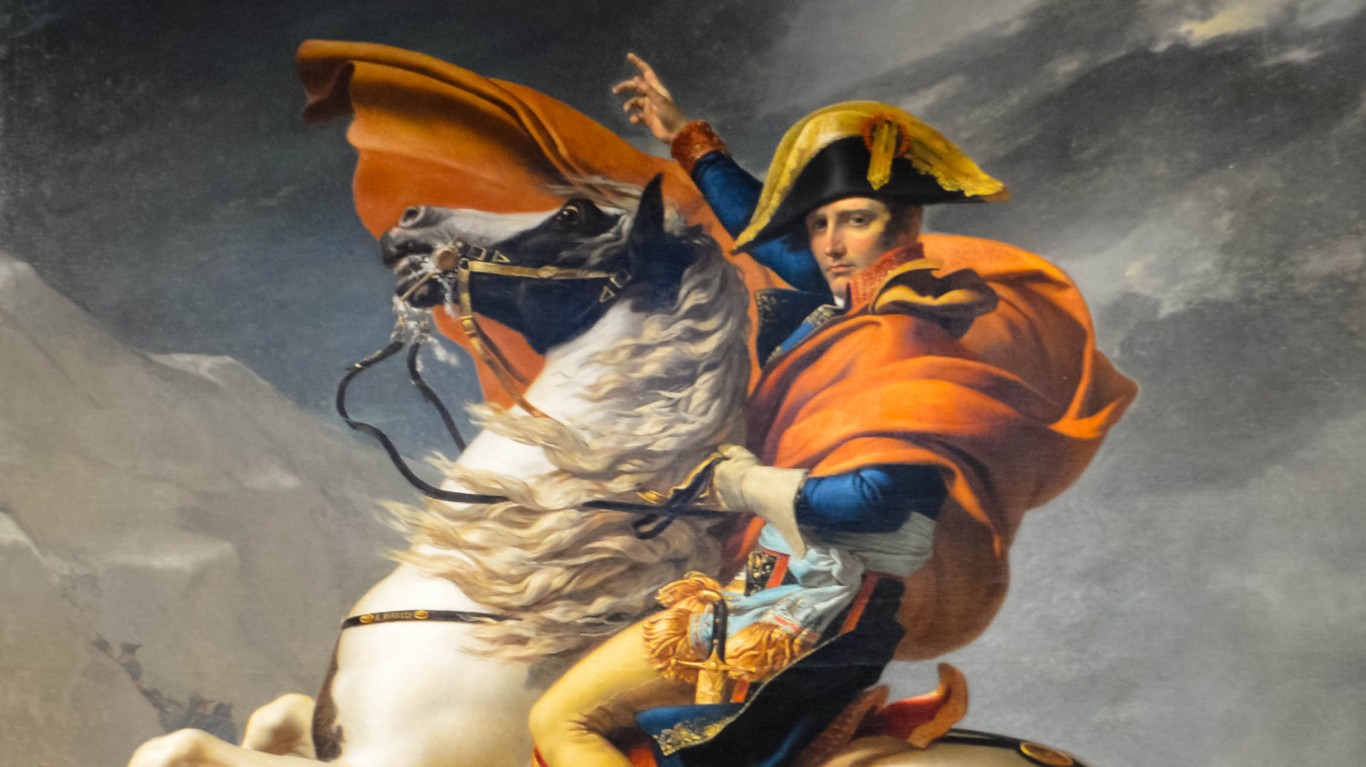 24/7 Wall St.
24/7 Wall St.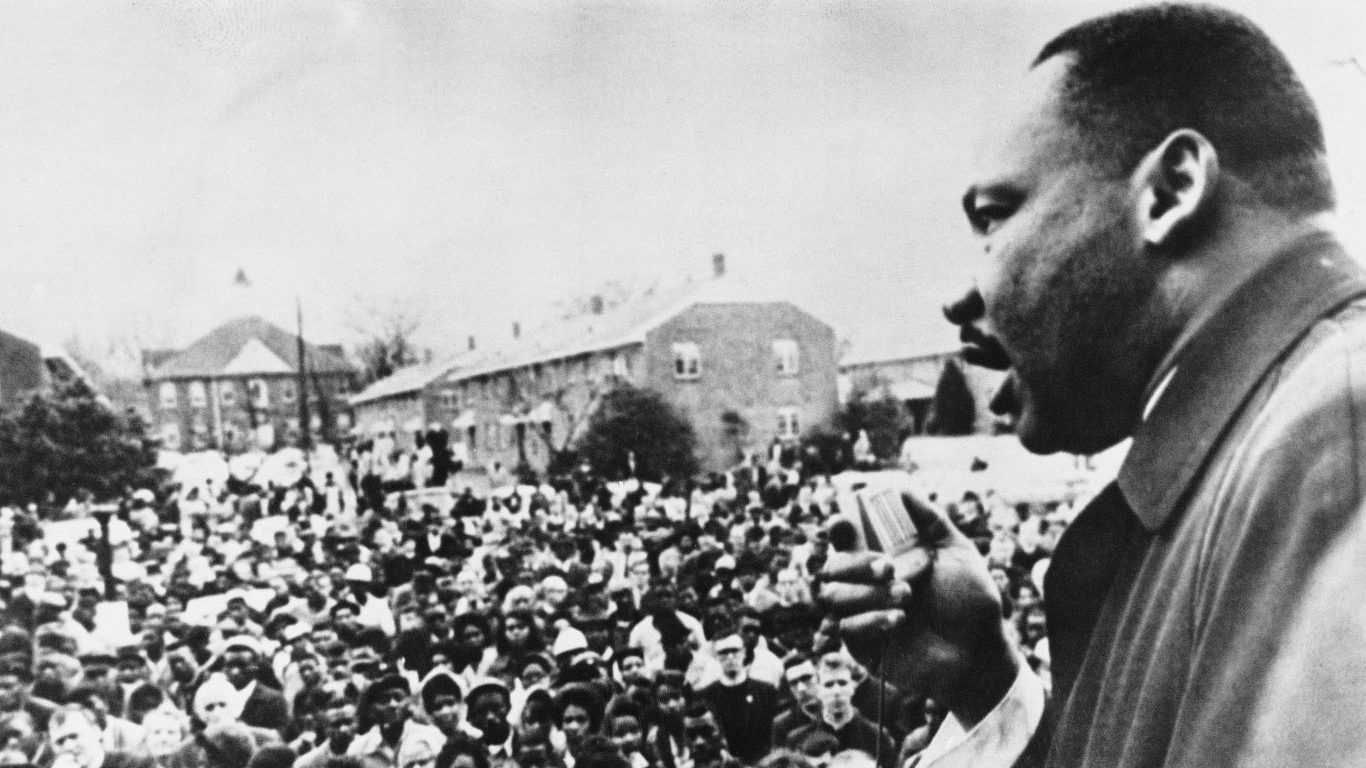 24/7 Wall St.
24/7 Wall St.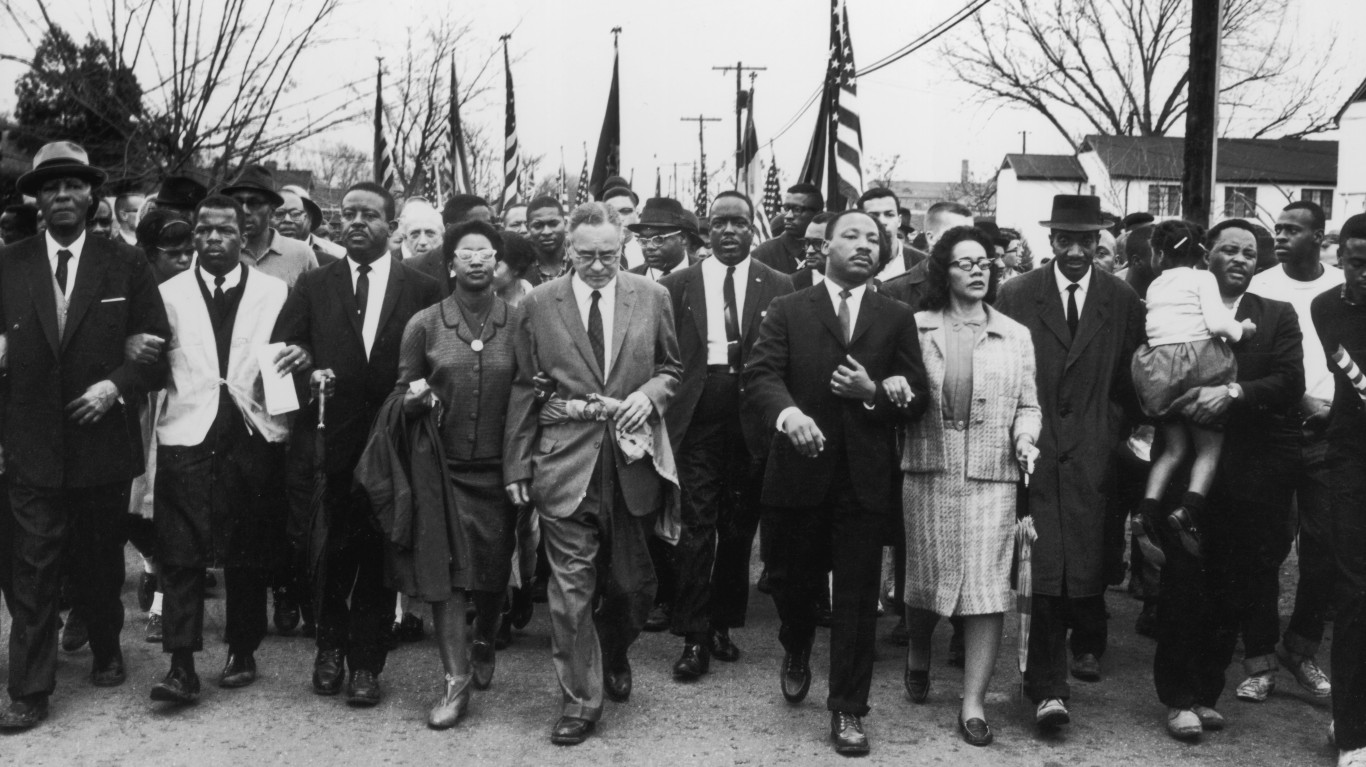 24/7 Wall St.
24/7 Wall St.